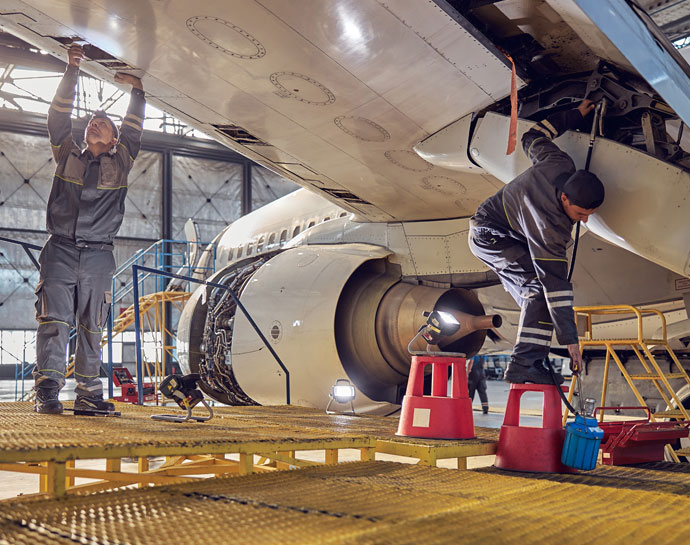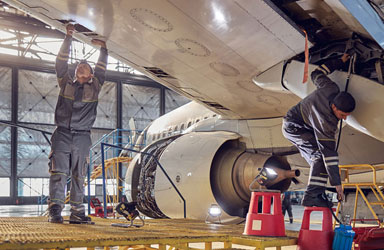GSE Calibration Services
We provide GSE certification, calibration, maintenance, and repair for the following aircraft maintenance equipment:
- Hydraulic power units
- Cabin pressure units
- Aircraft jacks
- Engine hoists and slings
- Ground Power Units
- Multi-purpose carts
- Skydrol recovery carts
- Nitrogen carts
- Oxygen carts
- Tugs and towing equipment
- Regulators
- Battery chargers
We also offer the following accredited services for aviation operations:
- On-site proof load testing
- Electrical and electronic instrument calibration
- Pressure (both gauge and transducers) calibration
- Vacuum calibration
- Force (both tension and compression) calibration
- Mass flow calibration
- Humidity calibration
- Physical-dimensional calibration
- Temperature calibration
All services are performed in accordance with our world-class quality system and are available on-site and at our full-service GSE-capable lab.
GSE Brands We Service


Our expert technicians are ready to help keep your aviation and avionics operations streamlined and on-track! Contact us for a quote today.


